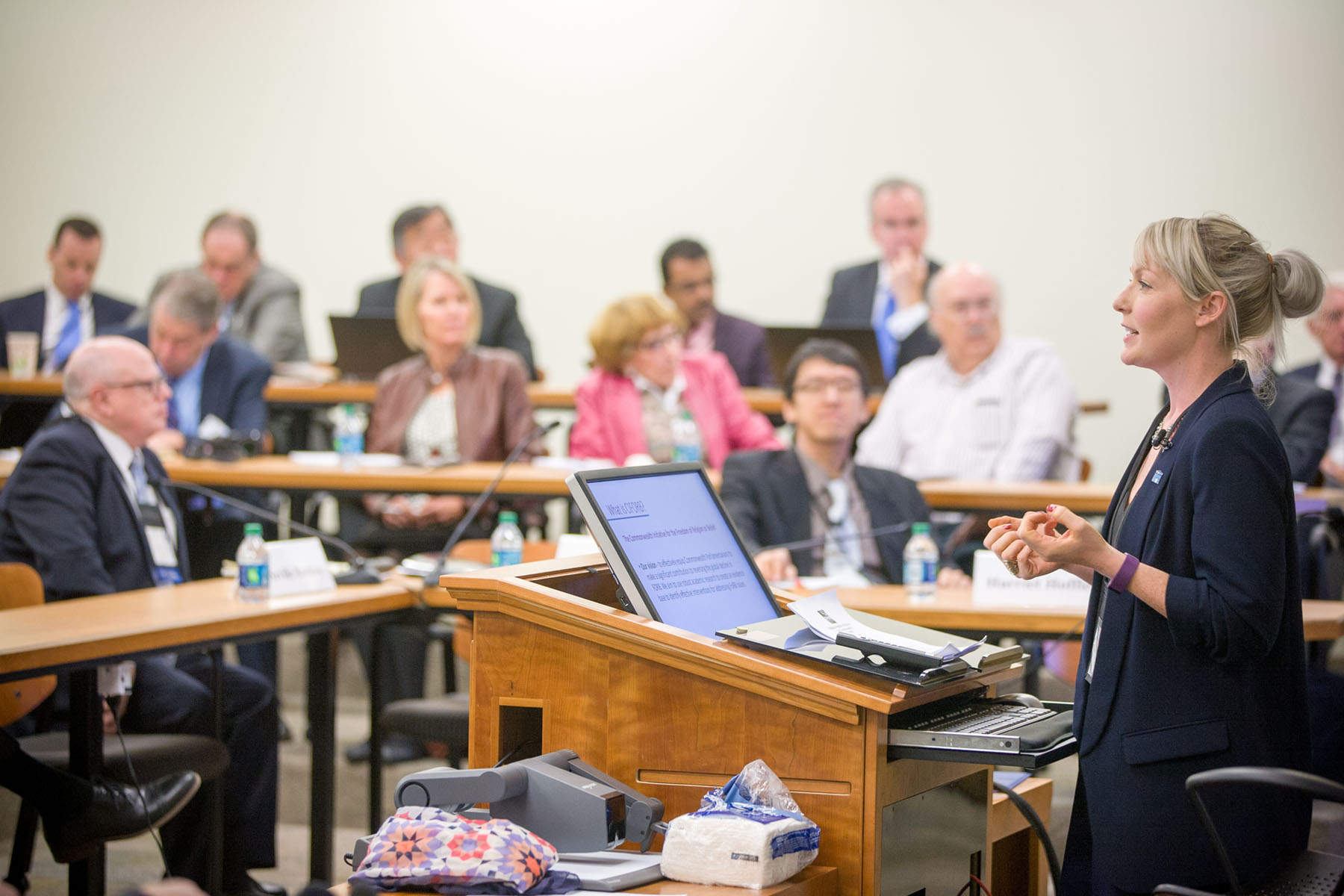Symposium 2016: Religious Freedom Initiatives in the British Commonwealth

by Jordan Pendergrass
Most breakout sessions at the Symposium are dedicated to a single region or country. One of Tuesday’s sessions, however, took on a much larger project—the entirety of the British Commonwealth. This session was entitled Religious Freedom Initiatives in the British Commonwealth, and speakers included Harriet Hoffler, Research Fellow, Commonwealth Initiative for Freedom of Religion and Belief, University of Birmingham, United Kingdom, and Joshua Neoh, Lecturer, Australian National University College of Law. The proceedings were moderated by Neville Rochow, Barrister, Australia and European Union Government Relations Representative, European Union Office of The Church of Jesus Christ of Latter-day Saints.
The session was well attended and delegates from many different Commonwealth nations were present. Ms. Hoffler began the meeting by giving an overview of the Commonwealth Initiative for Freedom of Religion and Belief (“CIFORB”—pronounced [sahy-fawr b]). She described CIFORB’s importance, organization, mission, methods, and more. Of particular significance is CIFORB’s size, covering 5 continents, 2.2 billion people, and 53 nations; the Commonwealth features a high degree of diversity, with large populations of Hindus, Muslims, Buddhists, Christians, non-believers, and more. A principal goal of the Initiative is to engage with members of Parliament and enable them to make sound decisions as it relates to FoRB, which can be a vast space. In addition to its efforts with Parliamentarians, CIFORB focuses on eight thematic areas: Justice/Policing/Law, Philanthropists, Business, Women and Girls, Social Media, the Creative Arts, Education, and Human Rights.
Following Ms. Hoffler’s presentation, the audience in attendance broke into small groups to discuss a series of questions related to FoRB, both generally and specifically as it relates to the Commonwealth. Each group reported on its discussions. Main topics included youth education, the human rights framework, challenges, interfaith conversation, methods for enabling Parliamentarians, and religion in the public square.
Mr. Neoh provided closing remarks. His thesis: the colonial experience of the British Empire can provide a useful religious freedom narrative. He explained that an important element of the colonial treaties was the preservation of the religion of the native people; colonial legitimacy was tied to the preservation of religious freedom. Rather than destroying native religion, the Empire allowed for religious diversity. The colonial state, explained Mr. Neoh, was able to balance complex and competing interests without infringing upon religious freedom. And in fact, religious extremism in the Commonwealth is seen to have its origins in the post-colonial era.